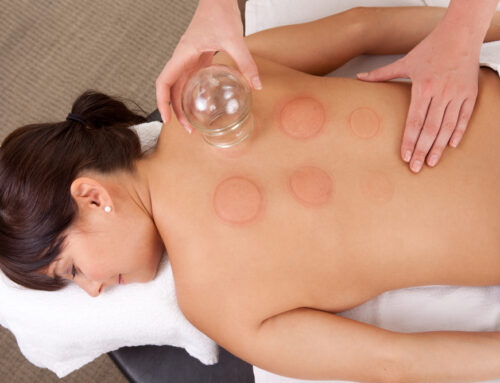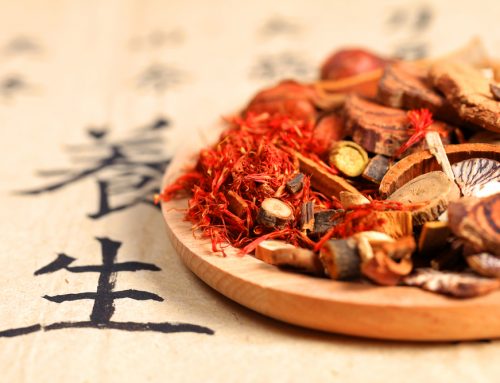Matthew Richardson, Registered Acupuncturist at Innate Wellness, High park, is an experienced acupuncturist who has spent a lifetime studying martial arts, Traditional Chinese Medicine and acupuncture. One thing many people don’t know about Matthew is his experience in fertility, pregnancy, labor and delivery. Wondering about how acupuncture can help fertility? Concerned about the labor and delivery process? Matthew has personal experience and many tips to help you conceive and deliver your baby on your terms!
Q1. For those of us that don’t know – what exactly is acupuncture and how does it work?
This is the most common question I get, and the hardest one to answer.
The textbook kind of answer is this : Acupuncture is a Traditional Chinese Medical practice that has been practiced, passed down and improved on for over 2000 years and involves the insertion of very thin sterile stainless steel needles into very specific points on the body. The stimulation of these points have the effect of regulating blood pressure, reducing pain, regulating the nervous system and promoting proper organ function. These combined effects are useful for treating any pain, symptom or disease of the body.
Put simply though, acupuncture stimulates the body to heal itself. Health is a state of balance. Your best health comes from you, and acupuncture is the means by which we can improve the body’s function when it has lost balance.
As a side note, when people ask me about acupuncture I often suggest they come in to experience a session. There is a look that people have when you ask them to do something they have never imagined themselves doing before like acupuncture. I don’t think people are afraid of needles so much as they are afraid of the unknown or they think it will be painful since most needles we use hurt.
Let me just say Acupuncture doesn’t hurt.
There may be some areas that are more sensitive, but you don’t feel pain. Acupuncture is safe and painless, so if you feel anxious about it, I would say try it once and you will be pleasantly surprised. Common sensations you feel are warmth, tingling, heaviness or pressure in the area or just a general feeling of relaxation. It is these sensations that let us know we are having a healing effect on the body.
Q2. What is one of your favourite piece of wisdom from Traditional Chinese Medicine?
It would probably be the concept of yin/yang which to me means Change and Balance. It is the idea of change and balance in life, in relationship to others and our environment, and within ourselves.. It is the basic theory that penetrates all things, and if we look we can see it in everything. But, it’s not just theoretical it is a way to live and walk through life – understanding that there is a natural balance, which is constantly moving and changing. Our health is maintained when we are also able to accept this movement and change throughout life. This theory is what grabbed my attention as a teenager and continues to keep me interested in my life and this medicine
One thing you always have to remember when you look at the Yin/Yang image as well, is that this is a picture of movie, a still frame. Yin and yang are always changing places. There is constant movement, constant change, this is life.
Q3. What role does acupuncture play in fertility. How do little needles help to promote conception?
Would it be biased of me to say that acupuncture plays an incredibly important role? We know that everyday couples are getting pregnant without any attention to health or wellness, so it’s definitely not required. But, everyday there are couples who are trying without success. A term that I hear a lot these days is “unexplained infertility”, which has got to be the most frustrating thing to hear if what you want is to be fertile, right?
The good thing about TCM is that everything is explained through individual patterns. Everything can be differentiated and diagnosed and therefore we can develop a treatment. For infertility this usually means addressing three things:
- Improving blood quality and circulation to the reproductive organs
- Improving egg quality and movement towards the uterus
- Supporting the uterus and its lining.
The last point I have found to be very clinically important as correct attachment of the embryo to the uterus wall is strongly affected by the integrity of the uterine wall. Acupuncture plays a unique role in this aspect as it is one of the only treatment modalities that can relax and affect the internal organs and muscles.
Also the great thing about TCM is that it informs the patients on lifestyle and diet; there are a few dietary and lifestyle changes that are effective, and complimentary to acupuncture.
Q4. You have a special acupuncture protocol for labor and delivery. How does it work?
There are a group of 3 – 5 special acupuncture points that are very useful to promote labor and delivery of the baby.
For delivery its best to start around 35 – 36 weeks, which gives you time to slowly prepare the uterus and cervix as well as baby for delivery. It is also important to start at this time in case the baby isn’t in an ideal position. Acupuncture is very effective for getting the baby to move into a head down position and begin to engage the cervix. If the baby is in more of a breach position this early in the timeline, we still have time to help baby turn since they are smaller and have more room to maneuver.
The results of the treatment are that you feel what would be similar to Braxton Hicks contractions, or light contractions of the uterus. This is the uterus preparing itself for delivery. It also helps the baby to practice for delivery as well. The other major result from this preparation is that we can help the cervix to soften and begin to dilate. Once the baby is in the correct position the only obstruction to natural birth is the dilation of the cervix. If this doesn’t happen in a timely fashion, by 40 weeks, then intervention is considered. Acupuncture is intervention prevention!
I also highly recommend a session where the partner comes in and I teach them how to do massage on these same acupuncture points so that they can be stimulated nightly. This is also critical for delivery as these points help during labour to encourage the cervix to continue to dilate and can also help decrease some labour pain. Also, if you decide to do an epidural these points will get the labour moving again as an epidural usually slows things down quite a bit and can lead to the necessity for other interventions.
Q5. You have 2 little children of your own. Did you use acupuncture for their delivery? How did it help with the process?
Yes, we did acupuncture throughout the pregnancy including preparation for delivery, labour induction, and postpartum recovery. The story I tell that has helped friends and patients is about the labour of our first child. We had been doing acupuncture to prepare for labour for about 3 weeks and she was 39 weeks pregnant.
My wife went into labour on Thursday afternoon with contractions 5 minutes apart about 10 – 20 seconds in length. This went on until the evening and then it slowed down and stopped for the night. The next day the contractions came again in the morning and went on all day and all night. This continued till Saturday afternoon when the timing of contractions changed to 3 minutes apart for 20 – 30 seconds. Finally, her water broke, and the intensity went up. We decided it was time to go to the hospital around 6pm. At this point my wife was about 5 cm dilated and was exhausted with no sleep. She opted for an epidural as the pain had been constant all day and the prospect of more was too much, even though she did want a natural birth.
As soon as the epidural was administered, labour progression slowed and contractions became minimal at an interval closer to 4 minutes. They told us it would probably be about 6 to 8 hours before she would be ready to give birth. With my experience now I would say that without the intervention we would have had a baby in about 30 – 60 more minutes at the most. But, when things slowed down it gave my wife a chance to rest, so she slept for about 2 hrs.
When she woke they wanted to giver her oxytocin to restart the labour process but we asked them not too as we didn’t want to begin a process of intervention we couldn’t stop. They staff grudgingly decided to let it go, but if labour didn’t start again in the next hour, they would begin the oxytocin.
We began massage on the acupuncture points that promote labour and within about 20 – 30 minutes she began to progress into active labour and about 30 minutes later our baby was on his way out. The nurses and doctor were surprised at how quickly she gave birth after her epidural and were definitely caught off guard by the unexpected timing as I was the one who came close to having to deliver the baby. I am not trained for that by the way!
The best thing for us, besides our new baby, was that we had options that we could use to control the situation. We weren’t pushed to do something we knew we didn’t need to do and the labour massage really saved us. I think that’s what acupuncture points can provide. You have something you can do in a time where things feel out of your control. This is something I’ve taught to others and the results have been the same for everyone. Efficient and safe delivery on your own terms.
Q6. Do you have any quick tips for expecting Moms?
As per TCM, I always tell my patients to keep their feet warm. Every Chinese Grandmother cringes inside when she sees a young women walking around with uncovered feet. It is a cultural thing, similar to our parents telling us not to go outside with wet hair. A lot of blood vessels and nerves end in the feet. The other end of those structures attach to the lower abdomen and effect all the organs in that area including the reproductive organs. And for fertility, pregnancy and birth movement is everything, so warm feet are a simple way to keep the blood moving inside.






